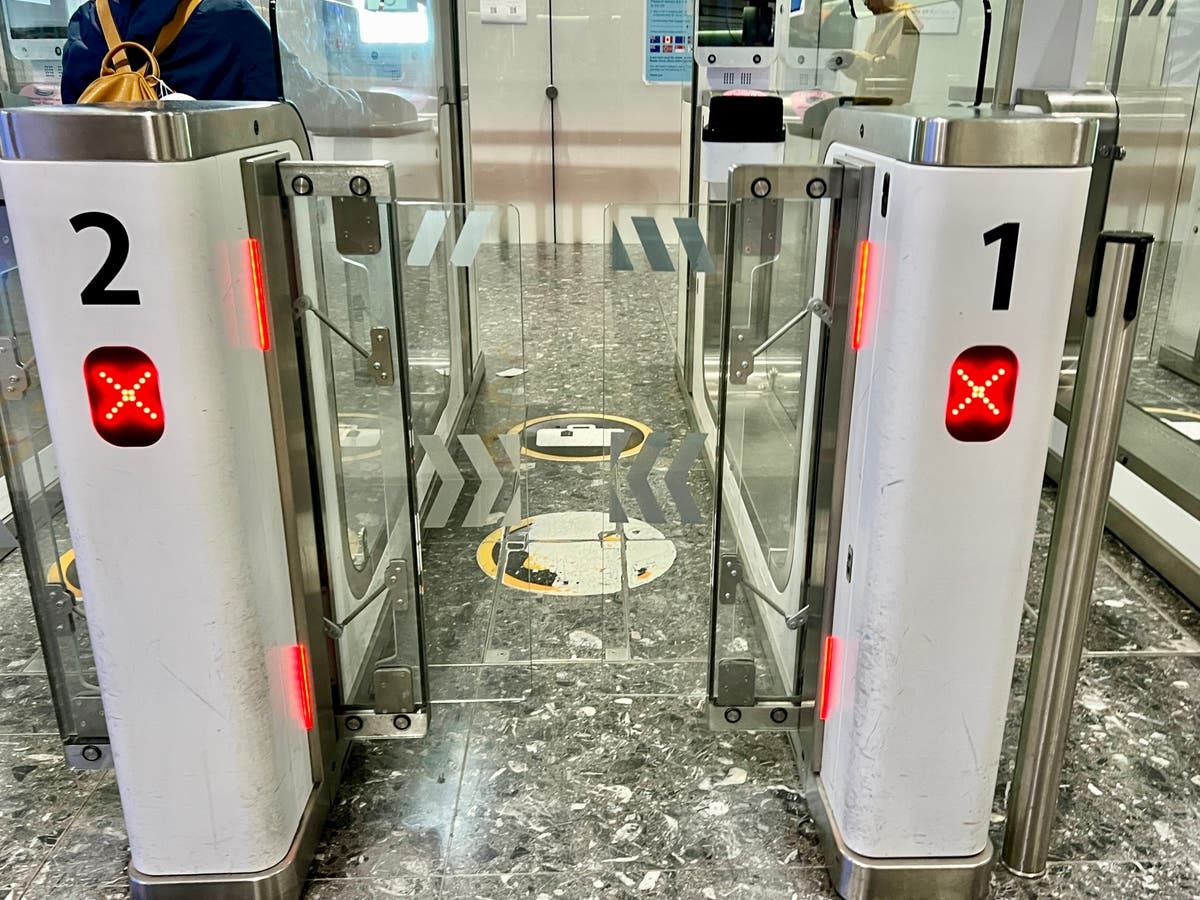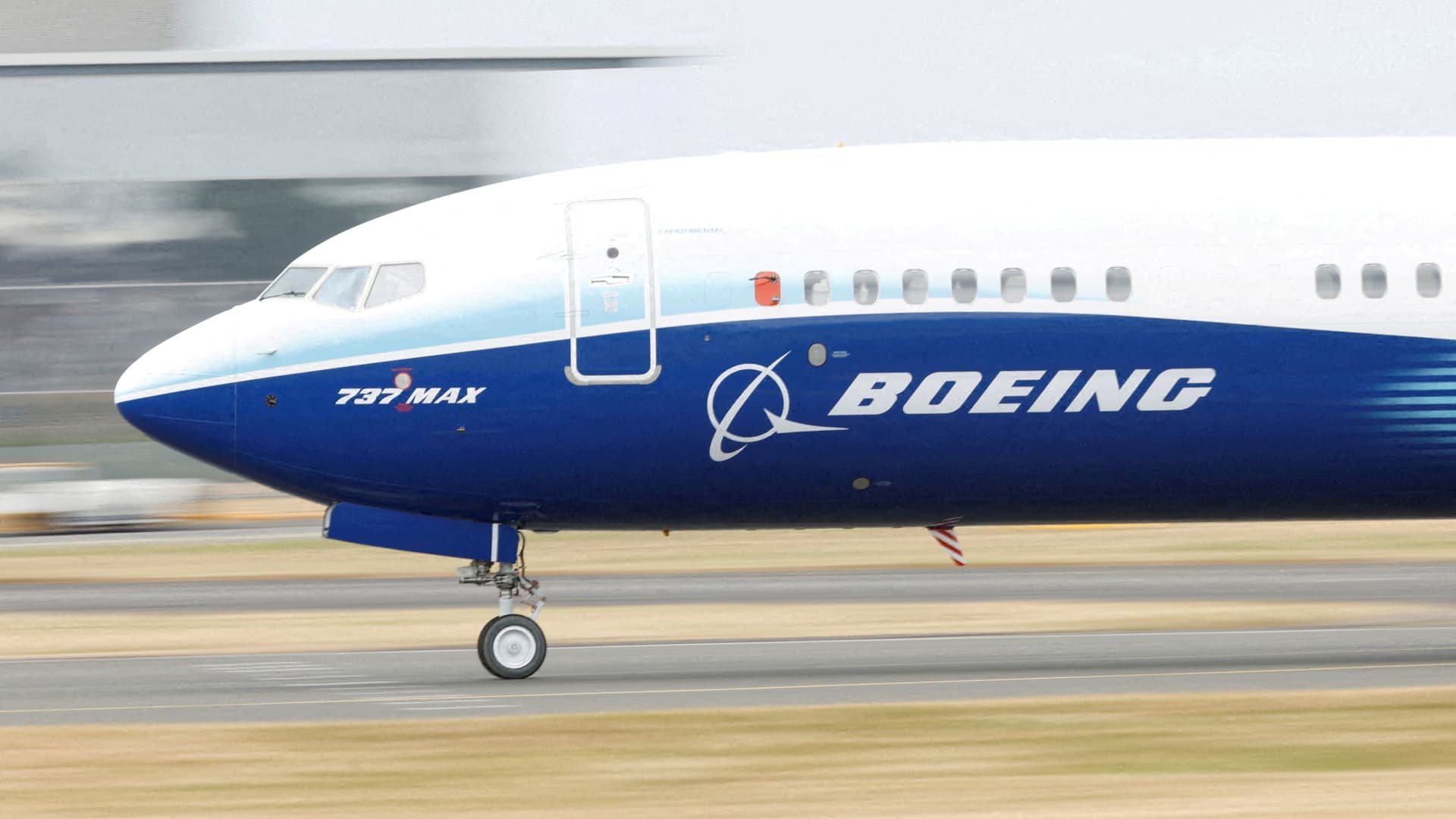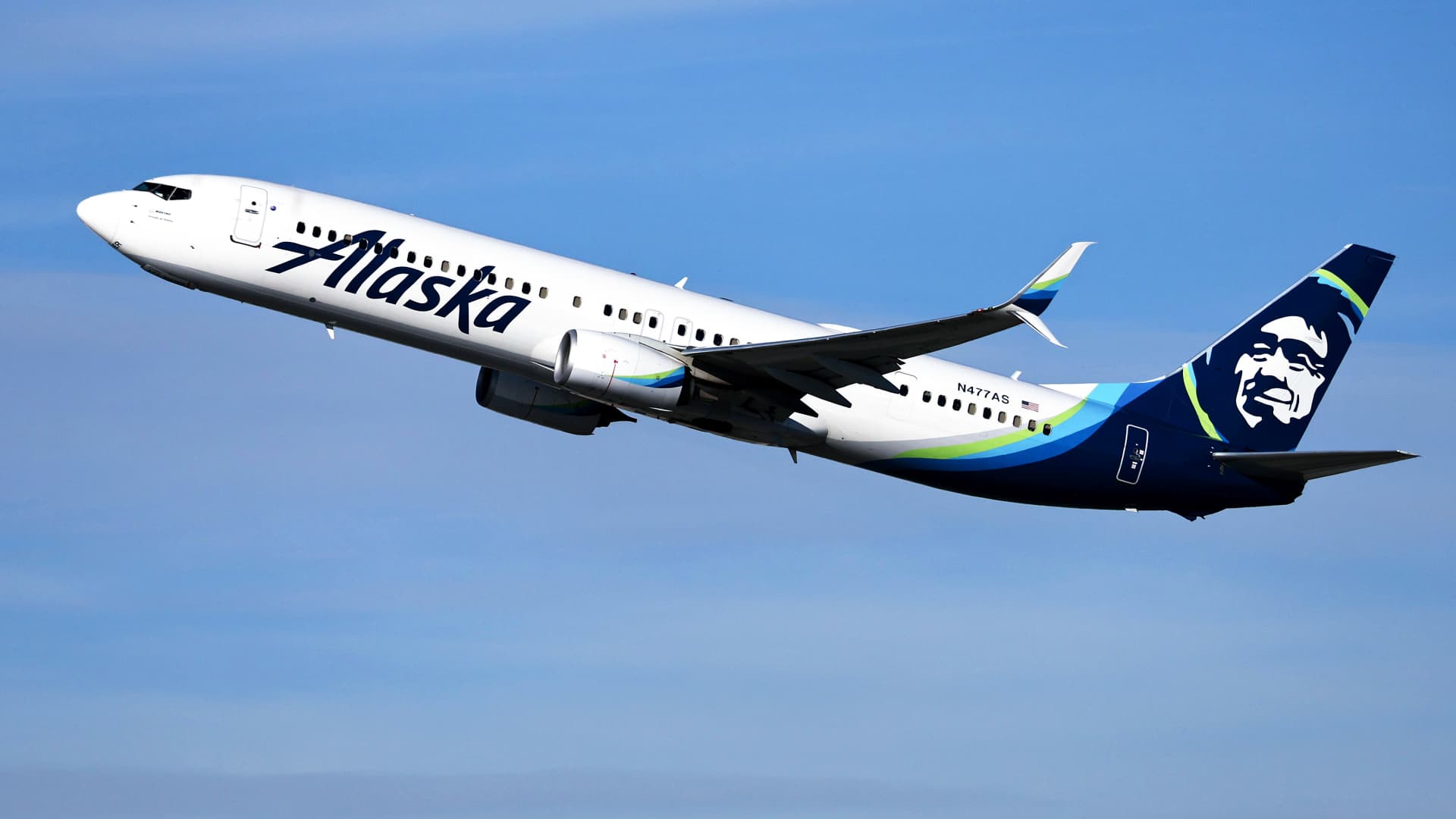The UK's Electronic Travel Authorization (ETA) system is now up and running, but currently only for visitors from Bahrain, Jordan, Kuwait, Oman, Qatar, Saudi Arabia and the United Arab Emirates. It costs £10 and is valid for two years, unless the traveler's passport expires sooner.
The government describes the ETA as “a new requirement for people who do not need a visa to come to the UK”. It will be necessary even for those who are “airside” at Heathrow for two hours between international flights.
Announcing the plan in March 2023, then Immigration Minister Robert Jenrick said: “ETAs will improve our border security by increasing our knowledge of those seeking to come to the UK and preventing the arrival of those who pose a threat. It will also improve the travel of legitimate visitors.
“The cost of an ETA will be one of the best in the world compared to similar international schemes. “This small additional cost to visitors will allow us to strengthen UK border security and keep our communities safe.”
For British travelers, there should be no direct impact. But travel industry figures say the rules attached to the ETA will hurt UK airlines and tourism, particularly Northern Ireland.
These are the key questions and answers.
What is planned?
Most visitors to the UK do not need to go through the complex and expensive task of applying for a British visa; They simply show up with their passport and request entry.
But all that is changing with a new online permit, the Electronic Travel Authorization. The ETA will be mandatory for all foreign visitors to the UK “visa-free”, except for Irish people, who are allowed free movement under the Common Travel Agreement.
The starting point of the trip to the United Kingdom is not relevant: what counts is the nationality of the traveler.
The ETA is modeled after the US Esta and is electronically linked to the traveler's passport. The cost is £10. The permit will be valid for repeated travel within two years or until the passport expires, whichever comes first.
When will it happen?
The rollout began with Qatari citizens traveling to or via the United Kingdom on November 15, 2023. On February 22, 2024, the program was expanded to citizens of Bahrain, Jordan, Kuwait, Oman, Saudi Arabia and the United Arab Emirates .
In 2023, the government said ETAs would be a requirement for all visitors who do not need a short-stay visa by the end of 2024. But the promise of having the system fully implemented this year has been quietly abandoned.
The government now says: “Other nationalities do not need to apply yet and deadlines for opening the scheme for them will be confirmed in due course.”
How do travelers obtain an ETA?
Online through a UK government website or via the app (search for UK ETA in the Apple App Store or Google Play).
You must provide a photograph and answer a series of questions. The government says: “This will ensure we have information about those seeking to come to the UK and will help prevent dangerous people, such as criminals, from entering the UK.”
A decision on each case is “normally” expected within three days. In practice, similar schemes in the United States, Canada and elsewhere achieve approval more quickly.
Commercial sites designed to tempt applicants to pay additional fees have already appeared, such as etauk.uk, which is based in Spain and has no connection to the UK government.
Who will check the ETA?
For most travelers, airlines and ferry companies are expected to check ETA status before the passenger boards a flight or ship bound for the UK.
Ferries from France to Dover, Eurostar trains to London and Channel Tunnel ferries to Folkestone have “juxtaposed checks” and UK Border Force staff will check permission while the traveler is in mainland Europe.
Upon arrival, UK Border Force will check the ETA and ask additional questions before deciding whether or not to allow the traveler entry. The government says: “An ETA does not guarantee entry to the UK.”
Non-Irish and British travelers from the Republic of Ireland to Northern Ireland will not face checks, but will be expected to have an ETA anyway.
What happens to passengers in transit?
The UK government has decided to act as an outlier by insisting that all connecting travelers must obtain an ETA. This will make London Heathrow Airport a more challenging transit hub than major competitors in continental Europe, as well as airports such as Istanbul and Dubai.
The near-global convention is that passengers connecting from one gate to another at a hub (without going through passport control) need only meet the requirements for their final destination.
But when the ETA scheme comes into full effect, all passengers except British and Irish nationals will need a permit, even if they are simply changing from one British Airways plane to another at Heathrow Terminal 5, or connecting with Star Alliance in Terminal 2.
Travel industry experts predict that overseas travelers with route options will switch to other hubs to avoid red tape and extra costs, hurting Heathrow and leading to a drop in British Airways and Virgin Atlantic customers.
About 30 percent of passengers at Heathrow are in transit.
Thomas Woldbye, chief executive of Heathrow, said: “This clearly reduces the competitiveness of the hub we have built at Heathrow, which I believe is vital for the UK.
“Honestly, I think it's a mistake. “I think that should be changed as quickly as possible.”
Paul Charles, director of The PC Agency and former communications director at Virgin Atlantic, said: “Taxing transit is tantamount to failure. If other airports offer free transit, they will gain market share.
“Airports must be comfortable areas that allow travel without problems. This proposed tax needs to be eliminated.”
Rob Burgess, editor of frequent traveler website Head for Points, says: “Why would anyone pay £40 for a family of four to obtain an ETA just to be able to transit into the UK en route from, say, the United States? United to Croatia? ? All the other European operators will laugh when they take up this business again.”
What does the government say?
A Home Office spokesperson said: “We are introducing an Electronic Travel Authorization (ETA) scheme to improve border security by increasing our knowledge of those seeking to come to the UK and preventing the arrival of those who pose a threat.
“Requiring transit passengers to obtain an ETA prevents people who can use connecting flights from obtaining permission to travel to the UK. “We will keep this under review as we continue to implement the plan.”
The government’s online information about the new plan says: “Requiring transit people to obtain an ETA will prevent transit from being a future loophole that people can use to avoid needing an ETA. “This is in line with the United States’ Esta plan.”
If I'm going to change planes in the US I need an Esta…
There is one crucial difference: All passengers transiting through the United States must clear Customs and Border Protection and be legally admitted to the United States. In theory they could decide, instead of moving to Atlanta, Chicago or Houston, to stay in the United States for up to three months.
This policy does not apply at Heathrow (or anywhere else in Europe) for cross-country travel. UK Border Force will not screen passengers on arrival at Heathrow if they continue their international journey.
Additionally, few U.S. airports depend on transit passengers for their business as Heathrow does.
In addition to the potential financial damage to airlines and Heathrow airport, the government's decision could also affect British passengers. Several routes and frequencies are viable only due to the volume of connecting passengers. If services are cut, options will be reduced and rates could increase.
Any other objections?
Yes: from the inbound tourism industry, particularly in Northern Ireland. The United Kingdom has already excluded more than 200 million European Union citizens from entering by insisting that they carry passports instead of their national identity cards. Introducing an ETA will add one more hurdle.
There is particular concern in Northern Ireland. Typically, visitors to the island of Ireland will arrive in Dublin or, for some American travelers, Shannon. They enter the Republic and usually travel by car, public transport or tourist bus.
Currently they can enter Northern Ireland without formalities to visit attractions such as the Titanic Belfast, the Giant's Causeway or the Game of Thrones studio tour. By the end of 2024, everyone will legally require an ETA to cross the (almost invisible) border.
Individual tourists can inadvertently break the law by crossing the border and remain blissfully unaware of their transgression.
But tour groups will follow the rules. Operators must ensure that each bus passenger has an ETA. Or the travel company can simply exclude Northern Ireland from Irish itineraries.
What could be the effect?
Currently, 60 per cent of non-British tourists visiting Northern Ireland also visit the Republic, according to the Northern Ireland Tourism Alliance, which says the plan “will be hugely detrimental to tourism on the island”.
The group estimates that visitors from Europe and North America could fall by 25 percent. He says: “The risk is that many global tour operators will exclude Belfast and NI from their itineraries because they are no longer a viable option.”
The London government has confirmed that there will be no exemptions for tourists staying solely on the island of Ireland.
In June 2023, then Northern Ireland minister Steve Baker said: “The government's position is that we should not create a loophole through the ETA scheme.
“I hope we can work together to ensure there is a consistent and coherent communication strategy to ensure tourists know they must register for an ETA and must continue to comply with UK immigration requirements.”










